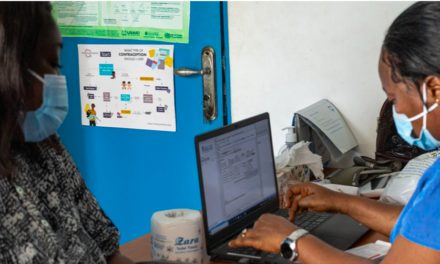January 31, 2024
Scientists have unveiled a groundbreaking diagnostic test for ovarian cancer, achieving an impressive 93% accuracy by combining machine learning with information on blood metabolites. For over three decades, the elusive quest for a highly accurate early diagnostic test for ovarian cancer has stumped physicians, often referred to as the “silent killer” due to its asymptomatic nature in the early stages.
The research, led by Professor John McDonald from the School of Biological Sciences at the Georgia Institute of Technology in the US, brings renewed hope for early detection and improved treatment outcomes for ovarian cancer patients. The novel test excels in detecting ovarian cancer in women clinically classified as normal, particularly showcasing its efficacy in identifying early-stage ovarian disease.
Published in the online issue of the medical journal Gynecologic Oncology, the test utilizes a patient’s individual metabolic profile to provide a more accurate probability of the presence or absence of ovarian cancer. This personalized, probabilistic approach surpasses traditional binary (yes/no) tests in clinical informativeness and accuracy, representing a promising stride in the early detection of ovarian cancer and potentially other cancers as well, according to Professor McDonald.
“While the average five-year survival rate for late-stage ovarian cancer patients, even after treatment, is around 31%, if ovarian cancer is detected and treated early, the average five-year survival rate is more than 90%,” emphasized McDonald. The urgent need for an accurate early diagnostic test for this insidious disease is evident, driving researchers to explore innovative approaches.
Due to the molecular-level origins of cancer, there are multiple potential pathways leading to the same cancer type, resulting in high-level molecular heterogeneity among patients. Identifying a universal diagnostic biomarker has been challenging, leading the researchers to leverage machine learning for an alternative probabilistic approach.
The integrative approach involved combining metabolomic profiles and machine learning-based classifiers to develop a diagnostic test with an impressive 93% accuracy. The test was evaluated on 564 women from various regions, including Georgia, North Carolina, Philadelphia, and western Canada. Of the participants, 431 were active ovarian cancer patients, while 133 women did not have the cancer.
Further studies are underway to explore the test’s potential in detecting very early-stage disease in women displaying no clinical symptoms. The breakthrough offers a ray of hope for early intervention and improved survival rates in the fight against ovarian cancer, and researchers are optimistic about its broader applications in the realm of cancer diagnostics.












